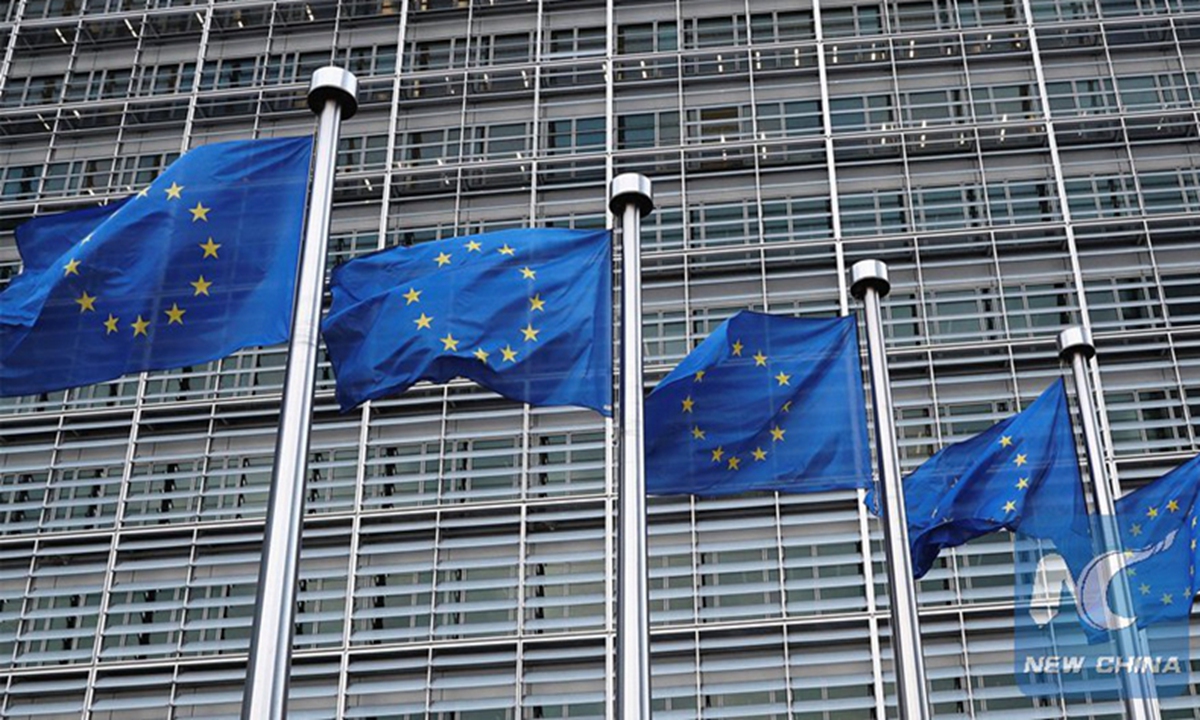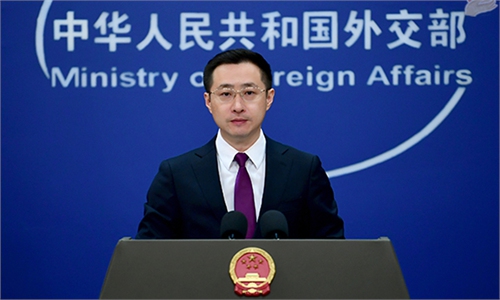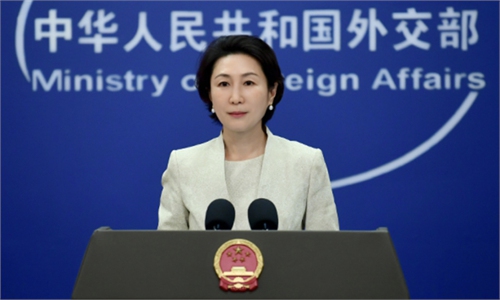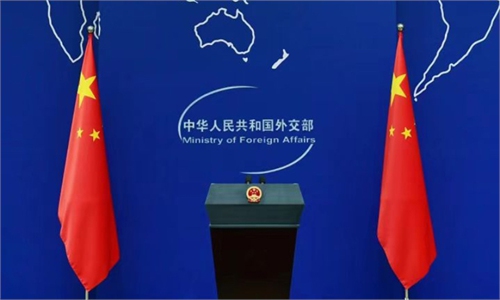China opposes EU's proposed sanctions against banks, stresses normal exchanges and cooperation with Russia

The European Union flags in front of EU headquarters in Brussels, Belgium. Photo: Xinhua
China opposes unilateral sanctions that have no basis in international law or authorization of the UN Security Council, Chinese Foreign Ministry spokesperson Lin Jian said on Thursday.Lin made the remarks in response to media reports claiming that the EU has proposed sanctioning two small Chinese banks for apparently helping Russia get around the bloc's trade restrictions.
Most countries, including those in Europe and the US, continue to trade with Russia. The normal exchanges and cooperation between Chinese and Russian companies are consistent with WTO rules and market principles. They do not target any third party and should not be disrupted or affected, Lin added.
According to a Bloomberg report, under the proposed sanctions, EU-based financial institutions would be banned from conducting any transactions with the two regional lenders which are based near China's border with Russia. The news outlet said it is not identifying the banks because the measures have not yet been published.
The Financial Times (FT) said that the potential sanctions against Chinese banks is "the first attempt by Brussels to target a third-country lender for supporting Moscow's full-scale invasion of Ukraine." It claimed that two small regional Chinese banks have used crypto transactions to facilitate the import of goods covered by existing EU sanctions.
Citing officials with knowledge of the plans, the FT said the curbs were included in the European Commission's latest package of measures, and require the unanimous support of EU member states to be adopted.
The European Commission on Tuesday proposed an 18th package of sanctions against Russia aimed at Moscow's energy revenues, its banks and its military industry, according to a Reuters report.
Cui Hongjian, director of the Department of European Studies at the China Institute of International Studies, told the Global Times that Europe is eager to make more of an impact on the Russia-Ukraine conflict and strengthen its role as a major geopolitical player. However, lacking sufficient means, it can only rely on sanctions and increase their frequency.
On May 20, the EU adopted the 17th package of sanctions against Russia, which aims to "further restrict Russia's access to battlefield technologies and cut revenues from Russian energy imports by targeting an unprecedented number of vessels from Russia's shadow fleet."
Europe hopes to compensate for the limited effectiveness of sanctions by expanding them, but this struggles to address the awkward reality of their diminishing impact, Cui added.
Although Europe occasionally voices opposition to unilateralism and hegemony, its signaling of a possible sanction on Chinese banks suggests that, to some extent, Europe is emulating the US in pursuing long-arm jurisdiction and extraterritorial legal authority, said Cui.
He said the current China-EU relationship is a mix of cooperation, competition, and geopolitical maneuvering, which is not driven by China's intentions but largely stems from shifts in European perspectives.
China needs steadfastness to mitigate the negative spillover effects of the Russia-Ukraine conflict on China-EU ties, as China consistently upholds cooperation and a partnership-oriented approach, said Cui.
He suggested that both sides actively communicate and coordinate to avoid letting the issue overshadow the China-EU summit or the 50th anniversary of the establishment of bilateral relations.




